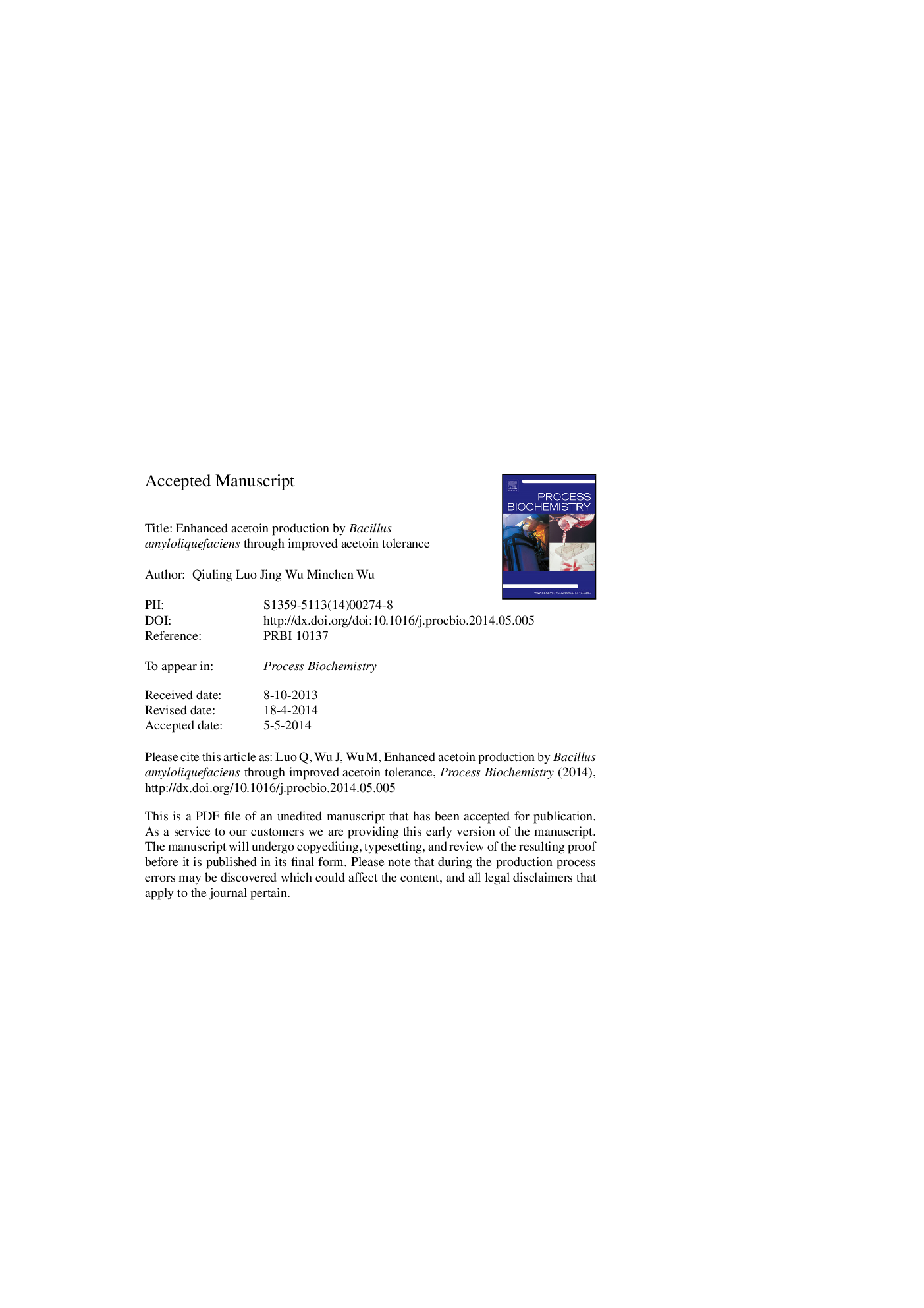| Article ID | Journal | Published Year | Pages | File Type |
|---|---|---|---|---|
| 10235388 | Process Biochemistry | 2014 | 29 Pages |
Abstract
Acetoin production by Bacillus amyloliquefaciens was used as a model of product feedback to develop a strategy to enhance the production of acetoin. To enhance the resistance of B. amyloliquefaciens to acetoin, an acetoin-tolerant mutant E-11 was screened by using adaptive evolution with acetoin stress as the selection pressure. When compared with the parent FMME044, the mutant E-11 exhibited superior fermentation performance as follows: (1) the mutant E-11 exhibited increased tolerance to high concentration of acetoin, and the specific growth rate was 265.2% higher than that of the parent FMME044 in medium containing 80Â g/L acetoin; (2) acetoin production by the mutant E-11 reached 71.5Â g/L at 44Â h when cultured in a 7-L fermentor with 173Â g/L glucose, and the acetoin concentration and productivity of the mutant E-11 were 39.6% and 14.4% higher than those of the parent FMME044, respectively; (3) the unsaturated fatty acid contents in the mutant E-11 were 64.8%, 37.8%, and 18.4% higher than those in the parent FMME044 when cultured in 0, 40, and 60Â g/L acetoin, whereas the saturated fatty acid contents in the mutant E-11 were 9.5%, 13.9%, and 14.1% lower than those in the parent FMME044, respectively.
Related Topics
Physical Sciences and Engineering
Chemical Engineering
Bioengineering
Authors
Qiuling Luo, Jing Wu, Minchen Wu,
